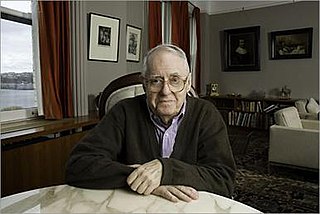A Quote by Vladimir Lenin
All contemporary religions and churches, all and every kind of religious organization, Marxism has always viewed as organs of bourgeois reaction, serving as a defense of exploitation and the doping of the working-classes.
Related Quotes
The Marxist critique is only a critique of capital, a critique coming from the heart of the middle and petit bourgeois classes, for which Marxism has served for a century as a latent ideology.... The Marxist seeks a good use of economy. Marxism is therefore only a limited petit bourgeois critique, one more step in the banalization of life toward the "good use" of the social!
Communists have always viewed the national question through the prism of the class struggle, believing that its solution has to be subordinated to the interests of the Revolution, to the interests of socialism. That is why Communists and all fighters for socialism believe that the main aspect of the national question is unification of the working people, regardless of their national origin, in the common struggle against every type of oppression, and for a new social system which rules out exploitation of the working people.
Contemporary American churches in particular do not require following Christ in his example, spirit, and teachings as a condition of membership-either of entering into or continuing in fellowship of a denomination or a local church.... Most problems in contemporary churches can be explained by the fact that members have not yet decided to follow Christ.
Democracy appears to me potentially a higher form of political organization than any kind of dictatorship. But if it turns out that in America, which could afford a decent living for everyone, the comfortable majority is willing to condone the misery and abuse of a minority for an indefinite period, the exploitation by the majority becomes as repugnant as exploitation by an oligarchy, and democracy loses half its supposed superiority.
All religions are not the same. All religions do not point to God. All religions do not say that all religions are the same. At the heart of every religion is an uncompromising commitment to a particular way of defining who God is or is not and accordingly, of defining life's purpose.
Anyone who claims that all religions are the same betrays not only an ignorance of all religions but also a caricatured view of even the best-known ones. Every religion at its core is exclusive.
Freud, Jung thought, had been a great discoverer of facts about the mind, but far too inclined to leave the solid ground of "critical reason and common sense." Freud for his part criticized Jung for being gullible about occult phenomena and infatuated with Oriental religions; he viewed with sardonic and unmitigated skepticism Jung's defense of religious feelings as an integral element in mental health. For Freud, religion was a psychological need projected onto culture, the child's feeling of helplessness surviving in adults, to be analyzed rather than admired.
It has drowned the most heavenly ecstasies of religious fervour, of chivalrous enthusiasm, of Philistine sentimentalism, in the icy water of egotistical calculation. It has resolved personal worth into exchange value, and in place of numberless indefeasible chartered freedoms, it has set up that single, unconscionable freedom -- free trade. In one word, for exploitation, veiled by religious and political illusions, it has substituted naked, shameless, direct, brutal exploitation.
I always collect images, maybe because I was working with historic material - but even if I were working with contemporary material, I would do the same thing. I keep a kind of index of them while I'm working. I find them incredibly useful, not so much to illustrate a time, but to give some sense of the feeling of a time.
I would like to remind you that both assimilation and integration apply to the working classes in the nineteenth century, at least in Britain and also Germany. Like most outsider groups compared with the establishment, the working classes were treated more or less with the same kind of stigmatization as immigrant groups are treated today.









































